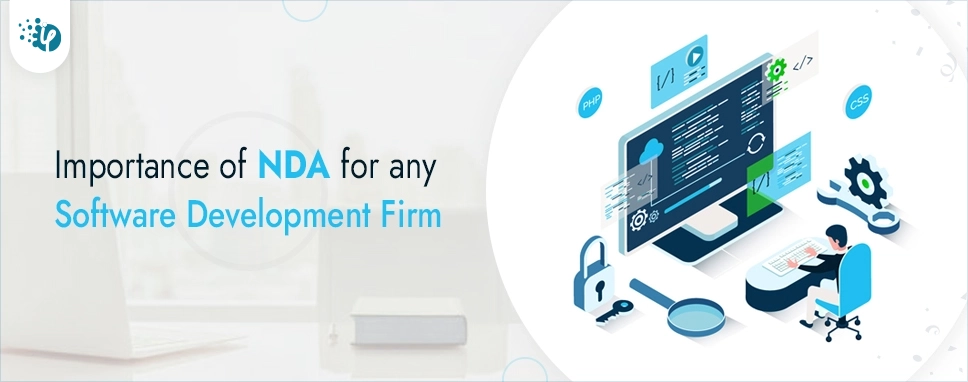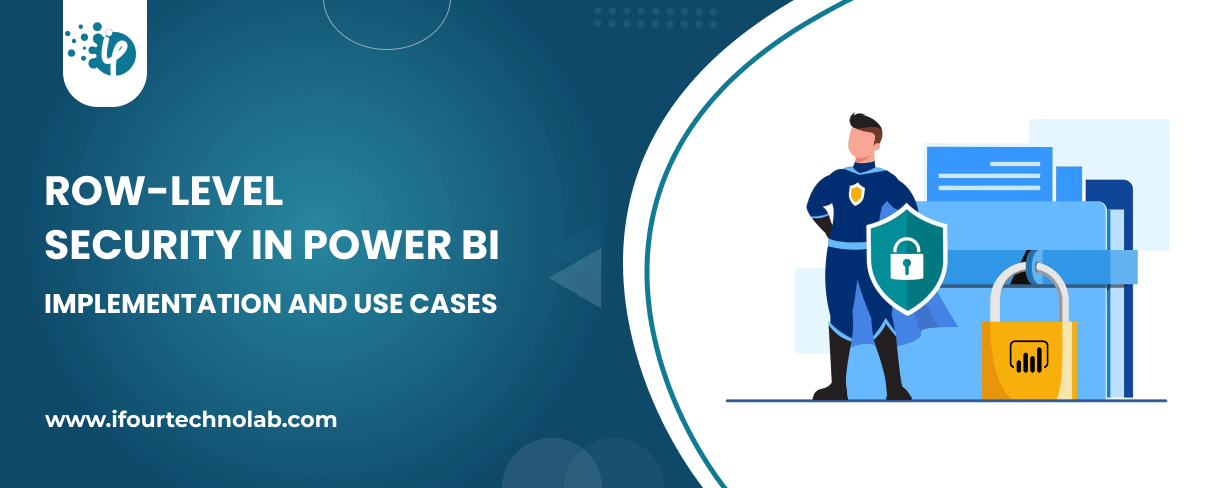17 Power BI Myths and Misconceptions Busted | Uncover the Truth
Did you know that 70% of CTOs (Chief Technology Officers) hesitate to adopt Microsoft Power BI because of its myths and misconceptions that float around. What they fail to see is...
Listening is fun too.
Straighten your back and cherish with coffee - PLAY !

NDA stands for Non-Disclosure Agreement and it plays an extreme role when it comes to outsourcing your project to software development companies. Not only does it help to secure your project idea but also increases your confidence to share commercially-sensitive information with the company. Besides, having complete access to the data stand to reason why IT organizations make their developers sign an NDA agreement.
Once NDA is signed, it becomes illegal for anyone to disclose the project information whether it is source code or any other data related to the project. However, clients can seek legal recourse in case of any security breach.
Here, in this blog, you will learn how significant the NDA is in software development.
“NDAs are important but they are more important in the startup stage and growth stages of a business. Many people who are either simply indie developers, outsourcing development work, or in the early stages of creating an MVP get too caught up on having NDAs ironed out and ready – despite their unlikelihood of ever needing to be used. This wouldn’t be that big of a problem if it weren’t for the bottleneck it tends to create.
Many independent and smaller size developers get stuck on this obstacle and It becomes a point of friction making collaboration and brainstorming more difficult or even sometimes impossible. In my experience, at least as an independent developer with several programmers working for me, the effort exerted in creating, managing, and enforcing NDAs is not at all worth it. Out of the 50 or so mobile apps I’ve created, none have been stolen or infringed upon at any stage of development.”
- Andrew Maule, Digital Marketing Manager at CodeSigningStore
“An NDA is your security buffer to both ends: Your staff and contractors are aware of the implications of sharing or exposing crucial information to externals. On the other side, your clients have more confidence in your work as you demonstrate to work professionally. This increases your chances to win business as few companies have business insides public. Especially for large companies and government contracts, this is usually a non-negotiable condition. It pays to have your NDA agreement reviewed by a legal professional.”
- Peter Thaleikis, CEO at Bring Your Own Ideas Ltd.
“Non-Disclosure Agreements (NDAs) are of critical importance in any software development company. They are a lightweight, quick and industry-standard tool that allows parties to engage safely in vendor/consumer relationships without requiring lengthy contract negotiations at the start of a new relationship. Normally signed by two parties, each is given the same protection by the agreement and it is not designed to be more advantageous to a single party. A software vendor will usually enter into an NDA with a prospect they are working with, allowing the vendor to share commercially sensitive information with the potential buyer, and allowing the buyer to safely share knowledge of their business and its challenges; that could be a threat if they became public knowledge, or learned by a competitor. It is also common practice for a software development company to enter into an NDA with a sub-contractor or development partner, where the company may need to give the contractor access to its intellectual property in the form of documentation specifications or software assets; this helps mitigate the possibility of IP theft, especially if the sub-contractor has never been used before.”
- Mark Rooks, CTO at Oak Engage
“Confidentiality agreements can be critical for relationships to work between remote and contract dev teams and the clients they represent. Today's world is competitive and getting products to market often means beating out the competition on speed, not owning some patent. As such, we are almost always asked to sign NDAs. While fences make good neighbors, an NDA is really only as good as the neighbors who sign it. The best neighbors don't need the fence, but it's still nice to have for your peace of mind.”
- Nate Nead, CEO @ DEV.co
“Signing an NDA is pretty common in our field. There are too many trade secrets and sensitive information being exchanged and an NDA gives us the reassurance that there won't be a breach of confidentiality.
*An NDA can be unilateral or mutual. *When companies commission us to create their software, we sign a unilateral NDA whereby we cannot disclose information about the company that we're working with.
So the reason *why an NDA is important for a software development company* is because, * firstly, it gives us the opportunity to keep our project a secret before we release it*. If our competitors get a whiff of what we're doing, they'll pounce on it.
Therefore, an NDA gives us some breathing room where we can test out our products and then release them without being burdened by the thought of our competitors.
*Secondly, it creates trust between us and the company that we're working with. *This allows for a free-flow of information between us. Both of the parties know that neither would risk a lawsuit and thus, communication becomes effective.
Moreover, you also need to understand the scope of confidentiality with regards to an NDA. *Firstly, * the recipient party is expected to take reasonable measures to make sure that secrets remain secret. * And secondly*, the recipient party cannot use the confidential information themselves either. “
- Scott Hasting, Co-Founder of Betworthy LLC
“NDA (non-disclosure agreement) is basically a guarantee that your valuable ideas pertaining to new businesses, intellectual property, or any valuable information about your company won't be shared with a third party. By signing an NDA, a software development outsourcing company assures that all the important info shared during the co-operation process will stay between the two parties. Software development companies are constantly asked to show their previous projects to their potential partners. It's logical that companies want to test this vendor's work before starting a co-operation. However, an NDA is a 100% guarantee that your project won't be shared as a case study with the name of your company. By signing the agreement, the vendor accepts legal responsibilities in case the terms are violated. A good software development company would always have a sample document of NDA in hand which can be signed right before the client shares any information. Of course, the terms of the document should be thoroughly reviewed by both sides. If there is a chance to sign an NDA but have the opportunity to reveal partnership details after the completion of work, it is much better and acceptable in software development. In this case, the software development vendor would not have any trouble when sharing public case study information or asking for a client testimonial. So, NDA is a must in software development in most cases, however, arranging a post-completion review of the NDA terms is also highly recommended.”
- Srbuhi Avetisyan, Business Development Specialist at CodeRiders
“NDAs are critical to software development companies that want to preserve their patent rights. Specifically, patent rights start to be irrevocably lost upon a first public disclosure, public use or offer for sale of an invention and an NDA helps ensure that these activities don't occur before a first patent application is filed. While a bare minimum of implied confidentiality is required to prevent patent rights from being forfeited, having an NDA in place avoids any confusion, and at the very least, reinforces that the information being disclosed is proprietary and should not be shared with anyone. NDAs tend to make folks think twice about inappropriate sharing on social media or even informally talking with others about a software project they are working on.”
- Dylan Adams, Patent Attorney at Davis Wright Tremaine LLP
“A non-disclosure agreement (NDA) is a must to protect your confidential information in any industry. Usually, new business or app concepts, sales contact lists, source codes, development processes, projects, and release details are confidential information in the field of software development.
In the absence of NDA, it is quite possible that any development center can easily steal the source code and the concept of your own product. In such cases, there are high chances of making your own competitors in the market, and the drawback is that you are unable to take legal actions on the same.
On the other side, development companies will be at high risk too, if their sales strategies and development process are revealed.
However, in my opinion, it is wise to have a mutual NDA over the Unilateral NDA in the software development industry.”
- Mehul Rajput, CEO of Mindinventory
“I can attest that an NDA is critical in software development, but not for the reasons that most people may think. While it’s true that an NDA, at its core, allows one party to enforce its rights over confidential information against another party, rarely do situations rise to litigious enforcement actions. Simply put, litigation is not a viable means of enforcement in every case and it often doesn’t correct the damage done, time lost, or dollars spent. My advice to tech founders has always been to rely on their instinct and good judgment and, instead of relying on legal documents like NDAs (which should be signed in any event), consider that, in most cases, it’s not really necessary to share critical business info or trade secrets. There are ways to communicate a concept to a software developer or and many other roles without necessarily disclosing the business plan, long-term strategy, or other “secret sauce” that acts as a commercial advantage. Learning how to communicate is actually more important than relying on legal documents that are quite expensive to enforce. Aside from the option to pursue legal recourse, another advantage of signing an NDA is that it allows one party to clearly communicate what it considers to be highly sensitive, confidential information and how that party wishes for such information to be treated. Finally, the confidentiality restrictions in NDAs should also be used in other types of agreements, whether with consultants or employees, so that everyone is on the same page about how to treat sensitive company information.”
- Leila Banijamali, CEO of Symbium Corp.
“When developing software, an essential part of the method is to get other people to test the program. This is generally done at a step in the development in which the software is not fully released, and not yet guarded by some copyright laws. This is when a non-disclosure contract is used. This is a legal contract that is practiced to allow people to share information and thoughts in confidence, without risking the information or thoughts being taken without consent. Non-disclosure agreements are profoundly recommended for use in software development, and not just in regards to testing. They can also be used when you speak to potential partners like manufacturers, investors, or stockiest. They might also be required when you have to tell people about your idea or your business to get guidance. This could be from, financial advisors or banks.”
- Dusan Stanar, CEO of VSS Monitoring
“Having an NDA is an absolute necessity for any software or app that is developed nowadays. With a proper NDA in place, you can rest assured that no one will run-off with the code you spent years developing, only to join one of your competitors. Aside from that, having an NDA is also helpful when you outsource projects to third parties, giving you more peace of mind that your hard work is legally protected.
In the tech industry where outsourcing work to contractors and freelancers is common, having them sign an NDA is pretty much standard procedure. It helps protect the intellectual property of the entire software, including the code and everything that makes it tick. So my advice is to always have a standardized NDA to share with any new contractors or hires at your company, which will save you headaches down the line.”
- Tom Winter, Co-Founder at DevSkiller
“Non-disclosure agreements (NDAs) are important in every company, software development is no exception. In fact, it’s very important for software development companies to have NDAs for all of their developers. Why? With platforms like GitHub where code can be shared between developers, and NDA would prevent an employee from sharing code strings that are company-specific. Anything that has to do with internal business policies, internal processes, or is proprietary information must be protected. Open-source is a great tool that every developer utilizes, it’s a place where they can collaborate and bounce ideas off of each other to solve problems. The last thing any business wants is their internal or proprietary information falling into the hands of a competitor.”
- Pieter VanIperen, Managing Partner of PWV Consultants
“A non-disclosure agreement (NDA) is a must to protect the confidential information or program's source code in software development. Whenever a company intends to build useful software, it has to discuss the confidential information with the third party at some point. In the absence of an NDA agreement, that third party can share this confidential information with any other party. And if this happens, the value of your software can fall significantly. But, if you have signed NDA, there is no chance the involved party will share the information. If it does, it can be sued in the legal system. Also, NDA agreements are concluded before starting the contract with parties. So, it works as a precaution to confidential information. NDA can also protect intellectual property (your unique idea of software), patents, copyrights, and trademarks. So, it is a must-have, especially in software development.”
- Nitesh Gupta, marketing associate at PQAI
NDA is used to keep your trade secrets safe and secure. This is really important to form trust and maintain relations between two bodies i.e., client and a company. This eliminates the stealing and sharing of confidential information with outside individuals. To avoid damage to the company as well as the client’s value, an NDA agreement has become an indispensable factor. Here, in this blog, we have learned how important NDA is in software development. It would probably help you in understanding the role of NDA while making a business deal with companies.

Did you know that 70% of CTOs (Chief Technology Officers) hesitate to adopt Microsoft Power BI because of its myths and misconceptions that float around. What they fail to see is...

Every CTO knows the struggle of managing complex reports. The inefficiency of scattered data, the constant juggling between reporting tools, the challenge of ensuring accurate KPIs...

The very first reason why you should implement Row Level Security is to foster trust, a crucial element for any business's success. Next, it reduces data clutter and helps you load...